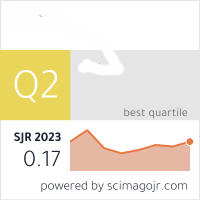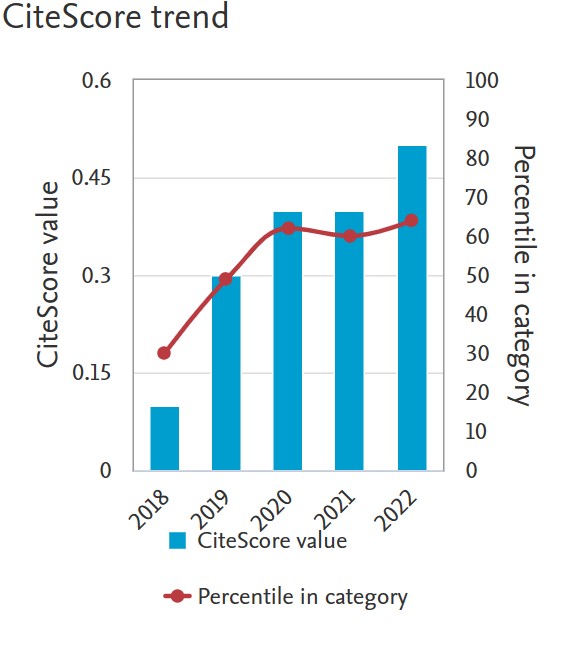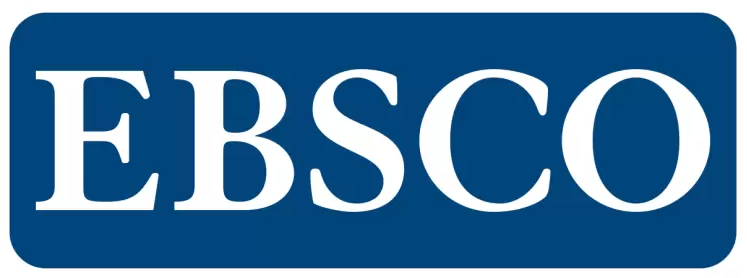Management of Strengthening Character Education in Improving the Noble Character of Elementary School Students (Descriptive Study at SDN 1 Pacet Cianjur and SDN Cipanas Sukabumi)
Keywords:
Management, Reinforcement Education Character, Morals Nobleness, studentsAbstract
This study aims to obtain information on the application of Character Education Strengthening (PPK) management at an early age in elementary schools (SD) in terms of: (1) Planning, (2) Organizing, (3) Implementation, (4) Evaluation, (5) Problems, (6) Solutions, (7) The impact of KDP management in improving the noble character of elementary school students. Character education has a strategic role in the personal formation of students. Thus, KDP must be done as early as possible so that children are able to instill good character and can carry it into adulthood so that a noble moral person is formed based on theological, physical, ethical, aesthetic, logical, and teleological values. The theory used is from Terry (2019) and Lickona (2020) through a qualitative approach with an analytical descriptive study method. Data collection is done through observation, interview, and documentation techniques. From the results of the research conducted, it was obtained that, planning, organizing, implementing, and evaluating KDP has led to conformity, but there is still a gap between theory and implementation in the field, so researchers found a problem internally, namely the role of teachers who have not been maximized in implementing this KDP program and are still much oriented towards teaching cognitive material. Then the problem from an external point of view is the lack of optimal communication management of the school with parents and the community about KDP, where the role of parents and the community has not been effective in supporting the KDP movement in shaping the noble morals of students, so solutions are needed on how teachers in educating can align the cognitive, affective, and psychomotor domains integrated in each subject. The school is also expected to intensively and programmatically cooperate and coordinate with parents and the community in socializing KDP, where education is the responsibility of the government, parents and the community, so it is hoped that this KDP program will have an effective impact in improving the noble morals of students, both morals towards religion, teachers, others, and parents. Conclusion: Management of strengthening character education in improving the noble character of students in two loci, namely SDN 1 Pacet Cianjur and SDN 1 Cipanas Sukabumi has been running in accordance with the principles of character education and the system of life values although there are still obstacles from internal and external factors, namely the lack of maximum roles of teachers, parents and the community.
Downloads
References
A., Doni Koesoema. (2010). Character Education; Strategies for Educating Children in the Global Age. Jakarta: Grasindo
Abdul Majid, Dian Andayani (2012) Islamic Perspective Character Education, Bandung: PT Remaja Rosdakarya
Adisusilo, Sutarjo (2012) Character-Value Learning. Jakarta: PT. King. Grafindo Persada
Amri, Ulil Syafri (2014) Qur'an-Based Character Education. Jakarta: PT Raja Grafindo Persada
Anis Matta. (2006). Shaping the character of the Islamic Way. Jakarta: Al-I'tishom Arikunto, Suharsimi. (2000). Research
Procedures: A Practice Approach. Jakarta: PT Asdi Mahasatya
Barnawi, &; Arifin, M. (2013). Character Education Learning Strategies and Policies. Yogyakarta: Ar-Ruzz Media
Buchari, M. (2014). Character Building and Our Education. Kompas, quoted December 12, 2014
Colquitt, Jason A. Jeffery A. LePine, dan Michael J. Wesson (2012) Perilaku Organisasi. New York: McGraw-Hill
Creswell W. John. (2013). Research Design Qualitative, Quantitative, and. Mixed. Yogyakarta : Student Library
Daulay, Haidar Putra (2014) Islamic Education in Philosophical Perspective. Jakarta: Kencana Prenada Media Group
Dewey, John (1961). Democracy and Education. United States. Available in: wikisource
Dini Palupi Putri. (2018). Character Education in Elementary School Children in the Digital.AR-RIAYAH Era :Journal of Basic Education, 2, (1), 38-48
George R. Terry (2005), Prinsip Manajemen, Alexander Hamilton. Institut, New York. Haitami Salim, Moh, (2013) Islamic Education in the Family, Jogjakarta: Ar-
Ruzz Media.
Hamzah Tualeka. et al (2011) Sufism.
Surabaya: IAIN Sunan Ampel Press
Hani Handoko (1999) Management. BPFE Yogyakarta,Yogyakarta
Harmon, D.A., Harmon, D., & Jones, T.S. (2005). Primary education: Reference handbook. ABC-CLIO
Hasibuan, Malayu S.P. (2001). Human Resource Management. Jakarta : PT. Earth Script
Divine, Mohammad Destiny. (2012). Learning Discovery Strategy and Mental Vocational Skills. Jogjakarta: Diva Press
Ilyas, Yunahar (1992) Islamic Aqidah Lecture. Yogyakarta: Institute for Islamic Studies and Practice - LPPI, UM
Ilyas, Yunahar (2014) Moral Lecture. Yogyakarta: Institute for Islamic Studies and Experience (LPPI)
Imam Sujarwo. (2012). Character-Based School Boarding Management (study
case in MA Nurul Jadid Paiton Probolinggo), Dissertation
Ministry of Education and Culture. (2016) Study and Guidelines for Strengthening
Character Education. Jakarta: Ministry of Education and Culture of the Republic of Indonesia
Ministry of Education and Culture. (2017) Strengthening Character Education as the Entrance to National Education Improvement" (https://www.kemdikbud.go.id/main/ blog/2017/07/reinforcement-education- character-so-entrance-revamping- education-national)
Ministry of National Education. (2011). Primary School Education Unit Level Curriculum. Jakarta: BSNP
Kiswati, Tsuroya. Kiswati, Tsuroya. (2006). Al-juwaini: The Foundation of Rational Theology in Islam. Jakarta: Erlangga. Jakarta: Erlangga
Koento Wibisono (1989) The Role of Scientific Groups in Participating in Developing Pancasila as an Open Ideology, Paper in the Meeting Forum of Members of the Fak Commissariat. Family Philosophy UGM Alumni, Jakarta Koesoema, A. (2010). Character Education: Strategies for Educating Children in the Global Age. Jakarta: Grasindo. Semarang
City), Dissertation
Kreitner, Robert and Angelo Kinicki. (2014). Organizational Behavior. Issue 9. Book 1. Jakarta: Salemba Empat
Kristiawan, M. (2016). Study of the Mental Revolution and Character Education in the Formation of Intelligent and Noble Indonesian Human Resources. Ta'dib, 18(1), 13-25
Kurniawan, S. (2013). Character Education: Conception and Implementation in an Integrated Manner in the Family, School, College and Community Environment. Yogyakarta: Ar-Ruzz Media
Lickona, Thomas. (2013) Character Education: A Complete Guide to Educating Students. Be Smart and Good. Bandung: Nusa Media Publisher
Mahmud Syaltut (1996) Al-Islam: Aqidah wa Syari'ah, ttp: Dar al-Qalam
Maksum, A. (2019). Character Building Model for Elementary School Students. International Journal of Control and Automation
Marini, A. (2017). Character building through the teaching and learning process. International Journal of Science and Research
Mas'ud, Ali (2012) Sufism. Sidoarjo: CV. Dwiputra Pustaka Jaya
Masruki. (2008). Civic Education Learning Management
Moleong, J. (2007). Qualitative Research Methodology (Revised Edition). Bandung: PT Remaja Rosdakarya
Mulyasa, E. (2011). Character Education Management. Jakarta: Bumi Aksara
Mulyasa, E. (2013). Curriculum Development and Implementation 2013. Bandung: PT. Juvenile Rosdakarya
Muslich, M. (2011). Character Education: Answering the Challenges of Multidimensional Crises. Jakarta: Bumi Aksara
Muslim Nurdin, et al. (1995). Islamic Morals and Cognition. Bandung: CV Alfabeta.
Nazarite. (1988). Research Methods. Jakarta : Ghalia Indonesia
Ornstein, A.C. and Hunkins, F.P. (2009). Foundations of Curriculum, Principles, and Problems. United States: Pearson
Qomar, Mujamil (2017) Islamic Education Management New Strategy for Management of Islamic Education Institutions, Jakarta: Erlangga
Sagala, S. (2010). Strategic Management in Improving the Quality of Education. Bandung: Alfabeta
Samani, M., &; Hariyanto. (2012). Concept and Model of Character Education. (A. Kamsyach, Contributor.) Bandung: PT Remaja Rosdakarya
Saryono, (2010). Qualitative Research Methods, PT. Alfabeta, Bandung
Schein, E. H. (2008) Organizational Culture and Leadership. San Francisco: Jossey- Bass
Sugiyono. (2010). Statistics for Research.
Bandung: Alfabeta
Sugiyono. (2011). Quantitative, Qualitative and R&D Research Methods Bandung: Afabeta
Education Administration Lecturer Team, Universitas Pendidikan Indonesia, (2011). Education Management. Bandung: Alfabeta.
Usman, H. (2011). Management: Educational
Theory, Practice, and Research. Jakarta: Bumi Aksara
Wijayanti, Irine Diana Sari. (2008) Management. Editor: Ari Setiawan. Yogyakarta: Mitra Cendikia
Zamzani, et al. (2010). Development of Indonesian Politeness Measurement Instruments in Face-to-Face and Non- Face-to-Face Social Interactions. Competitive Grant Research Report (Second Year). Yogyakarta: Yogyakarta State University.
Downloads
Published
Issue
Section
License
You are free to:
- Share — copy and redistribute the material in any medium or format for any purpose, even commercially.
- Adapt — remix, transform, and build upon the material for any purpose, even commercially.
- The licensor cannot revoke these freedoms as long as you follow the license terms.
Under the following terms:
- Attribution — You must give appropriate credit , provide a link to the license, and indicate if changes were made . You may do so in any reasonable manner, but not in any way that suggests the licensor endorses you or your use.
- No additional restrictions — You may not apply legal terms or technological measures that legally restrict others from doing anything the license permits.
Notices:
You do not have to comply with the license for elements of the material in the public domain or where your use is permitted by an applicable exception or limitation .
No warranties are given. The license may not give you all of the permissions necessary for your intended use. For example, other rights such as publicity, privacy, or moral rights may limit how you use the material.











